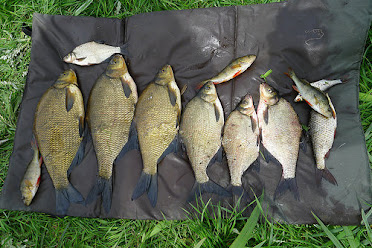from
Behind the French Menu
by
Bryan G. Newman
behindthefrenchmenu@gmail.com
Whole and chopped chives
Photograph courtesy of isaccgriberg
Ciboulette – Chives.
A herb much used in French cuisine and also one of the herbs in the important French spice group Les Fines Herbes. Chives are long, thin, straight, green blades that are hollow inside with a flavor that will remind you of baby spring onions.
On their own chives are used for making herbal butter, flavoring vinegar and the flowers from chive plants may also be used in salads. The chive is milder than most of its well-known family members that include garlic, onions, and leeks and that is the reason for its popularity. Chives work very well with eggs, cheese, yogurt, salads, sandwiches, creamy sauces, potato dishes, and omelets.
Potato skins with butter, sour cream and chives.
Cooking chives destroys most of their flavor and aroma, and for that reason chives will be added to a soup or stew just before serving. French chefs always use fresh herbs as they know very well that dried chives have no taste. Fresh chives may be kept in the refrigerator for three or four days and deep frozen.
Chives on French menus:
Carpaccio de Thon à l'Huile d'Olive et Ciboulette – Tuna Carpaccio marinated with olive oil and chives. (see Carpaccio).
Cassolette De Moules À La Crème De Ciboulette Et Aux Poireaux Gratinées Au Parmesan - Mussels cooked and served in a small cooking bowl with a cream of chives sauce, along with leeks browned under the grill with Parmesan cheese.
Croustillant de Dorade, Sauce Ciboulette, Pointes d'Asperges Vertes - Crispy, crusty, fried gilthead seabream served with a chive sauce and green asparagus spears.
Escalope De Saumon Crème Et Ciboulette sur Rapés de Pommes De Terre, Salade Verte – A filet of salmon served with a cream of chive sauce served on grated potatoes and accompanied by a green salad.
Chopped chives
Chive tea is made by boiling freshly chopped chives.
https://www.flickr.com/photos/grongar/4476924597/
Saumon Fumé par Nos Soins, Crème Légère à la Ciboulette – Smoked salmon, prepared by us and served with a light cream of chive sauce.
Saumon Mariné, Crème Fouettée à la Ciboulette Marinated Salmon served with freshly whipped cream flavored with chives.
Chives in the market.
Chives are not an import from the New World, in fact, chives is one of the few herbs that naturally grew both in the New and Old World. In Northern Europe, Chives have been cultivated for at least 5.000 years, and the use of chives in homeopathic medicine was known and already employed by the Romans.
French chefs have ramasseurs, gatherers, who bring in wild herbs and mushrooms in season; however, with wild chives, the chef must be very careful as they are much stronger than the cultivated chives.
Wild chives and their flowers.
Young chive flowers are also added to white vinegar, then along with a few other additions they make an excellent vinaigrette.
https://www.flickr.com/photos/mbowler/540413248/
Chives in the languages of France's neighbors:
(Catalan - all junciforme), (Dutch - bieslook), (German – schnittlauch), (Italian - erba cipollina, aglio ungherese), (Spanish – cebollino).
With thanks to Gernot Katzer’s Spice Pages for the translations:
http://gernot-katzers-spice-pages.com/engl/index.html
Connected Posts:
Behind the French Menu
by
Bryan G. Newman
behindthefrenchmenu@gmail.com
Copyright 2010,2016.


















